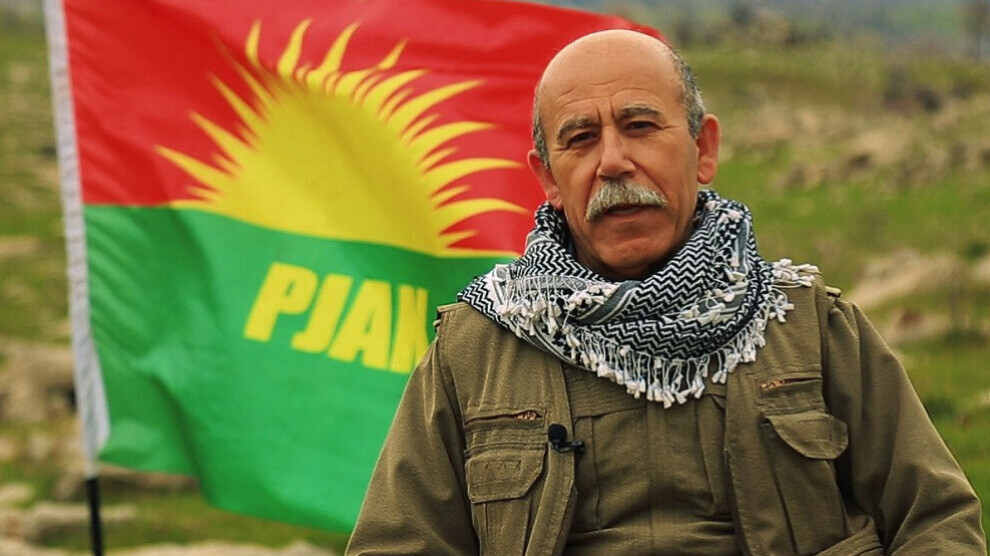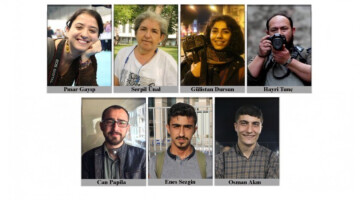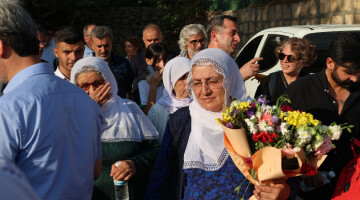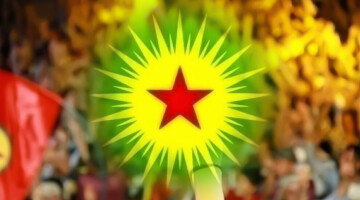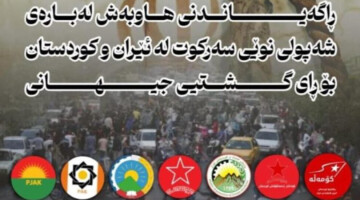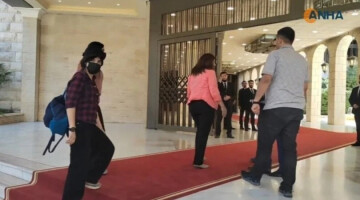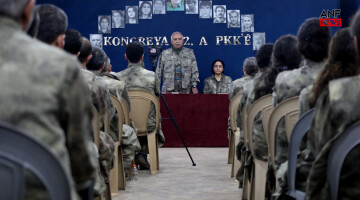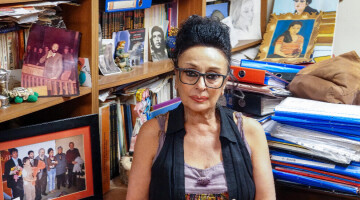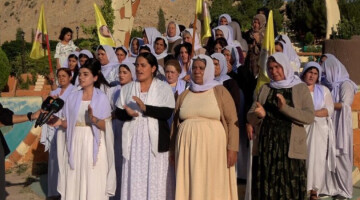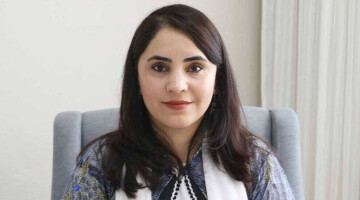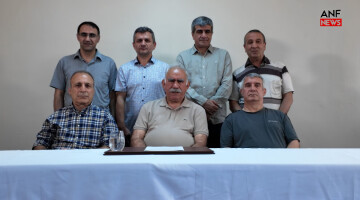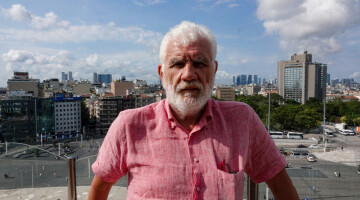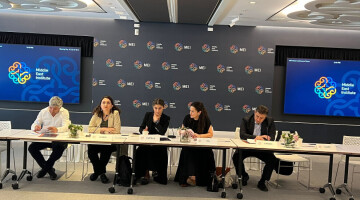The deadline set by Iran for the Iraqi central government in Baghdad to disarm Kurdish groups in the Kurdistan Region of Iraq will expire next week. According to its co-chair, the Party for a Free Life in Kurdistan (PJAK) will vehemently defend itself against this. "Handing over our weapons is out of the question," Siamand Moini told Westga News, adding: "If Iran attacks, we will stand united against it together with the other Kurdish parties."
Iran has long been demanding that Iraq expel or disarm opposition parties from East Kurdistan that it classifies as "terrorist" and "separatist." In addition to PJAK, the disarmament request also includes the parties PDK-I, Komala and PAK, which are based in Hewlêr, Sulaymaniya and Asos. The two countries had already concluded an agreement in March to step up action against these groups. In August, Baghdad agreed to disarm the Kurdish parties by 19 September and end their presence in the north of the country. Under no circumstances would Tehran agree to a postponement of the deadline, a spokesperson for the Iranian Foreign Ministry threatened two weeks ago. If Iraq misses the deadline, they will “assume the responsibility of ensuring the country’s security."
Dead and injured in Iranian missile attacks
The mullahs' regime accuses the Kurdish parties in the neighbouring country of involvement in attacks against its troops and accuses them of inciting the protests of the 'Jin, Jiyan, Azadî' movement triggered by the state femicide of Jina Amini in September 2022, as well as having smuggled demonstrators into the country. Shortly after the protests began, the Iranian Revolutionary Guard fired rockets and drones several times at the PDK-I, Komala, PJAK and PAK, which also operate civilian facilities such as schools and retirement homes in their base camps and care for displaced people. In September, at least fourteen people were killed and 58 others were injured, some seriously.
"In Iran, shortly before the first anniversary of the death of Jina Amini, the tension within the fascist regime is increasing," said Moini. The PJAK chair underlined that the Iranian regime has always pursued an uncompromising policy towards Kurds and has used strategies that amount to ethnic cleansing. However, since the 'Jin, Jiyan, Azadî' movement has shaken the foundations of the state and power, the regime is now escalating its anti-Kurdish repression machine. "The deepening of this policy of extermination has recently been reflected in an increase in extrajudicial killings, waves of arrests and other intimidation measures. Attacks on our forces have also increased. In doing so, the regime wants to demoralize society and make it clear that it will not allow the liberation and revolution of the people, especially the Kurdish people, under any circumstances."
Esmail Qaani, commander of the Revolutionary Guards' Quds Brigade, even threatened a ground offensive in Iraq in November if Baghdad did not secure the common border from the Kurdish groups. However, the Iraqi central government has stated in the past that this is failing because of the Kurdistan Regional Government in Hewlêr.
In July, the Iraqi Interior Ministry unexpectedly announced the deployment of a brigade on the border with Iran in coordination with the authorities in the Kurdistan region.
PJAK: Strengthen national unity and solidarity
It is still unclear whether Iraq will actually take any action against the Kurdish opposition groups in its own country as the Iranian regime wants. Iran's military option to solve its "Kurdish problem" has also been seen as the sword of Damocles for years. In any case, the PJAK is determined to hold on to its resistance. Moini said: "We will formulate and develop our party's roadmap according to the demands of our people and the 'Jin, Jiyan, Azadi' revolution, not according to the threats of the Iranian state. With the support of our people, we have built a strong organization in our country. Our position is that all Kurdish parties should put national unity and solidarity with each other at the center of their work instead of giving in to the regime's demands. A joint fight will prevent the enemy from achieving their goals. For this reason, we and the other Kurdish forces will support each other in the event of an attack by Iran."

